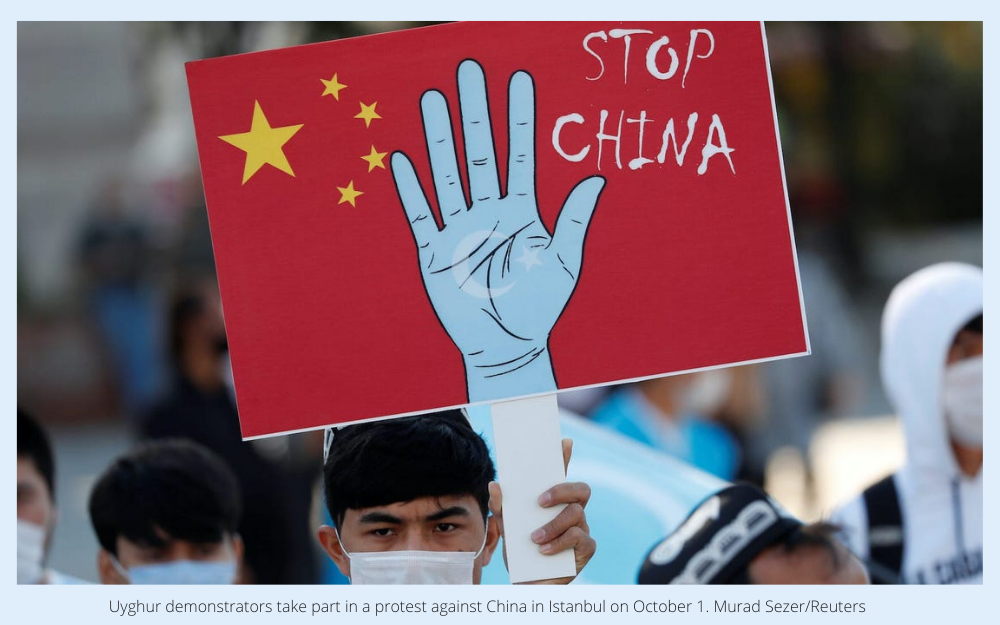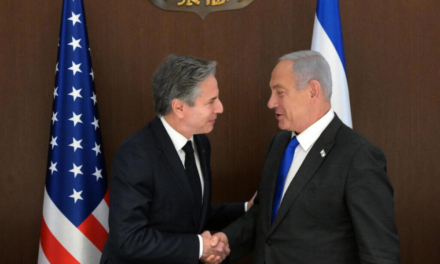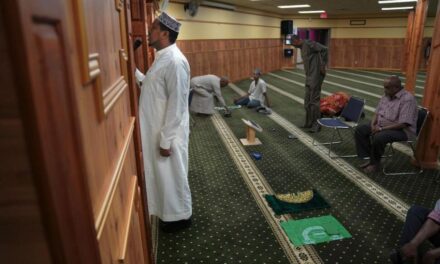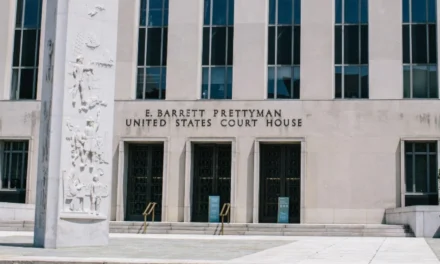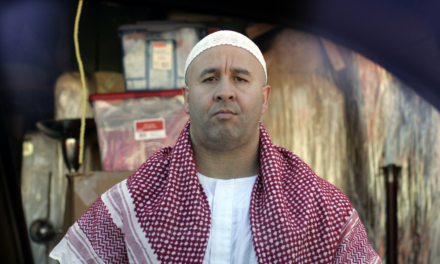In the name of a “People’s War on Terror,” the government of China has waged a campaign of repression against largely Muslim minorities in the province of Xinjiang, arbitrarily detaining as many as 1 million people in a network of prison facilities where torture and forced labor are routine, a leading human rights group said Monday.
In a 53-page indictment of the Chinese state, Human Rights Watch detailed a policy of mass incarceration, torture, disappearances, and cultural erasure in Xinjiang. Located in the westernmost part of the country, the province is home to a largely Uyghur population of Turkic Muslims in a nation that is overwhelmingly Han Chinese.
Although China’s government is generally authoritarian, HRW said it was especially repressive toward its Muslim population. Hundreds of thousands of people, it said, have been forced into political reeducation camps, with those outside subject to suffocating police surveillance — a million state employees have slept in the homes of Xinjiang residents — and cultural erasure, with the state dictating everything from appropriate facial hair to the names of one’s children.
“Chinese authorities have systematically persecuted Turkic Muslims — their lives, their religion, their culture,” Sophie Richardson, HRW’s China director, said in a statement. “Beijing has said it’s providing ‘vocational training’ and ‘deradicalization,’ but that rhetoric can’t obscure a grim reality of crimes against humanity.”
China has denied wrongdoing and justifies its behavior, like other states, with the language of a war on terror. The Chinese Embassy could not immediately be reached for comment. In 2014, more than two dozen people were killed in an attack by knife-wielding men at a train station in Kunming, in the southwest of the country, an act of terrorism that the state attributed to Xinjiang separatists.
That same year, China stepped up its crackdown not just in Xinjiang — leaked documents showed that authorities there preemptively detain any for whom guilt “cannot be ruled out” — but on those who had fled the province. In Thailand, authorities forcibly returned 100 asylum-seekers to China; today, HRW said, their whereabouts are unknown. As Insider’s Alexandra Ma reported, China’s harassment of Uyghurs even extends to the United States.
The cotton that comes from Xinjiang is also used by Western brands in clothing sold the world over, and is tainted by a reliance on forced labor. Abroad, that has led to calls for a boycott. In China, those calls have in turn spurred a nationalist fervor, with citizens pledging their own boycotts, punishing the likes of H&M for declining to use their nation’s cotton.
The use of coerced labor increased alongside China’s “War on Terror” initiative, the “Strike Hard Campaign,” the report said, with satellite imagery showing new factories being built alongside reeducation camps in Xinjiang. Inmates are forced to work for free as part of their “training.”
“It’s increasingly clear that Chinese government policies and practices against the Turkic Muslim population in Xinjiang meet the standard for crimes against humanity under international criminal law,” Beth Van Schaack, of the Stanford Center for Human Rights & International Justice, said in a statement.
Western governments have labeled China’s treatment of its Uyghur minority a genocide, citing evidence of labor camps, forced sterilization, declining birth rates, and a seeming effort to eliminate distinguishing characteristics of their culture. In March, the Biden administration slapped sanctions on Chinese officials for their “genocide and crimes against humanity in Xinjiang.”
Genocide, as a legal concept, is not a matter of the number of people killed or abused, but rather of intent — specifically, an “intent to destroy, in whole or in part, a national, ethnical, racial or religious group.” That destruction, according to the Genocide Convention adopted in 1948 by members of the United Nations, is effected by means of inflicting bodily or mental harm, curtailing reproduction, and inflicting conditions on a group that are “calculated to bring about its physical destruction in whole or in part.”
Refugees and human rights groups have provided evidence of those means. But HRW is not prepared to define the Chinese government’s behavior as some others have, saying it has simply “not documented the existence of the necessary genocidal intent at this time.”
The group is calling on the UN Human Rights Council to launch an inquiry into China’s actions. Foreign governments should also pursue travel bans and sanctions against the officials responsible, it said, prosecuting them if the opportunity strikes.
“That China is a powerful state makes it all the more important for holding it accountable for its unrelenting abuses,” Richardson said.
